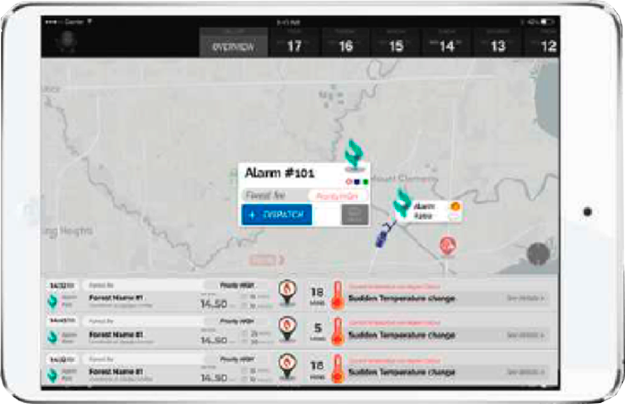This website uses cookies so that we can provide you with the best user experience possible. Cookie information is stored in your browser and performs functions such as recognising you when you return to our website and helping our team to understand which sections of the website you find most interesting and useful.
ATTRACT student projects
Discover the ATTRACT student projects boosting sensing and imaging technologies to enable breakthrough innovations for society
Team
The team members working on this project are the following:
Meijiang Li
MSc in Business Analytics
Esade Business School
Vasu
MSc in Business Analytics
Esade Business School
Lucas Herranz
Gancedo
Bachelor on Telecommunication Engineering
UPC
Lucas Ventura
Master on Telecommunication Engineering
UPC
Gabriella Tarigan
Interaction design
IED
Katherine Priscila
Interaction design
IED
Barberan Mora
Interaction design
IED
Project Ecotags
is based on ATTRACT project Ecotags
Background
ECOTAGS is an autonomous single-use temperature triggered alarm system. It consists of three main parts, the PCM (phase changing material), the paper-based battery and the RF (radio frequency) transmitter.
ECOTAGS provides significant advantages to many of the issues that current alarm systems have. The solution ECOTAGS proposes is to use a disposable sleeping autonomous device able to detect changes in temperature.
Outcome
Based on the interviews conducted, the market research and the development of the technology, the forest fire detection and PPE (Personal Protective Equipment) seem like the best possible use case for the product.
Environmental awareness is increasingly present in company policies. Industries are very interested in new solutions or substitutes to current technologies that are more environmentally friendly. Therefore, ECOTAGS key values are its energy saving and its disposability, both having heavy presence in the newer trends in the industry.
Another key value of ECOTAGS is the simple integration of the technology to the existing equipment. The portability and autonomy of the device are a huge advantage for any company wanting to install or complement its current systems.
The market research enlightened the vast amount of applications for the technology. With a wide range of PCMs and different temperature triggering ranges, the possibilities for the technology are plenty. The commitment is to test new PCMs without sacrificing the disposability value, therefore organic PCMs are preferred. It is seen throughout the market research that the size of the market is dependent on the temperature range of the PCM.


